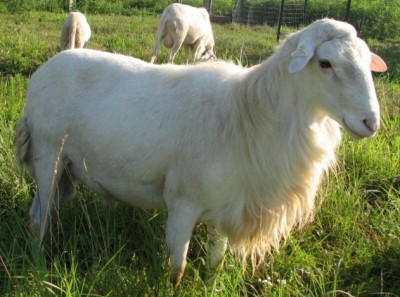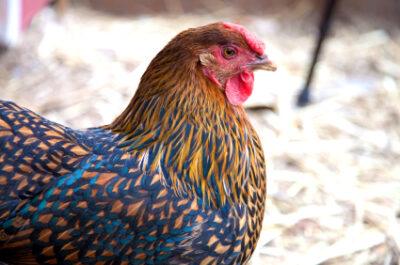|
Listen To The Article
|
The process of choosing livestock for the first time can be exciting but daunting. There are numerous varieties of cattle, fowl, goats and sheep out there with diehard advocates of each breed. Some people may not be aware that there are two main categories of livestock: commercial and heritage. It is important to take these categories into consideration.
Commercial vs Heritage Livestock
Commercial livestock breeds are the varieties that are most often used in the egg, dairy, beef, pork, etc., industries. Often, these commercials breeds have the advantage of having very high production — whether that means it’s a beef breed that puts weight on quickly to meet market standards or a hen that can lay an egg a day throughout the majority of the year reliably.
Everything you need to know to keep a cow healthy, happy, and productive… [2]
High production rates sound like a great reason to choose a breed of livestock, but don’t be fooled. As a result of being kept in commercial settings and being bred for one sole purpose in mind, many of these breeds have lost their ability to mother their young, have a lower tolerance for disease and can’t thrive in very hot or very cold climates. Also, these animals often are given antibiotics and other medicines to keep them producing well. It is common that livestock like dairy cows and laying hens are retired at a very young age — sure, they produced well but often reach the peak of their prime much more quickly.
Heritage breeds offer far more benefits for the homesteader or small farmer.
Benefits of Heritage Livestock
Heritage livestock are essentially the breeds used in eras past. These livestock are the foundation of commercial breeds and are fairly unchanged by people from their original purpose. While commercial breeds may beat out heritage breeds in production, they can’t compete with advantages.
Quality heritage breeds don’t suffer from the same problems their commercial counterparts do. For example:
- Heritage breeds are often easy to breed naturally, and generally the females take very good care of their young without much human interference.
- Heritage breeds are typically very disease-resistant and have very strong immune systems. They are ideal for homesteaders who aren’t interested in having to constantly medicate or vaccinate their stock.
- Heritage breeds often thrive in a variety of climates and are much more versatile as well as hardy. It isn’t uncommon that a heritage breed developed in a drastically different region – say, a tropical climate — can do very well with minor help in a region that experiences cold winters.
- Heritage breeds are generally smaller than their commercial cousins, making them easier to handle, house and feed. Pound for pound, many of these breeds are thriftier eaters and are able to keep weight very well on lower-quality feed or pasture that commercial breeds would not be able to handle.
- Similarly to the above advantage, many heritage breeds have great foraging skills. While a commercial bred chicken or sheep may struggle in a free-ranging or pasture situation and still rely heavily on hay or concentrate feeds, their heritage counterpart wouldn’t.
- Heritage breeds may cost the most per head, but you get the added benefit of being able to sell extra stock for a higher price. Depending upon the breed and species you are raising, you may be able to pay for the upkeep of your stock from just selling the young alone.
Heritage breeds are also often very enjoyable to raise, simply because they aren’t as common. You can often find quite welcoming, knowledgeable communities dedicated to preserving the breeds you are interested in. This is a great help for people who are new to raising livestock.
Common Heritage Livestock Breeds
If you don’t yet have any heritage breeds in mind, here is a quick list to get you started. Each hyperlink will take you to the breed’s organization to help you find more information.
Cattle
- Scottish Highland Cattle [4]
- Irish Dexter Cattle [5]
- South Devon Cattle [6]
- Belted Galloway [7]
Pigs
- Tamworth [8]
- Gloucestershire Old Spot [9]
- Red Wattle [10]
- Mulefoot Hog [11]
Fowl
- Narragansett Turkey [12]
- Bourbon Red Turkey [13]
- Khaki Campbell Duck [14]
- Welsh Harlequin Duck [15]
- American Buff Geese [16]
- Toulouse Geese [17]
- Wyandotte Chicken [18]
- Delaware Chicken [19]
Sheep
- Croix Sheep [20]
- Tunis Sheep [21]
- Shetland Sheep [22]
Goats
- Oberhasli [23]
- Golden Guernsey [24]
- Spanish Goat [25]
- Myotonic Goat [26]
Rabbits
- American Chinchilla [27]
- Champagne D’ Argent
- Silver Fox [28]
Whether you are doing homework for your very first dairy cow or have kept livestock but are interested in a different breed, I urge you to look into heritage breeds.
Have you had experience with heritage breeds? Please share your favorite heritage breed of livestock in the comment section below!
Every Year Gardeners Make This Avoidable Mistake — But You Don’t Have To. Read More Here. [29]

